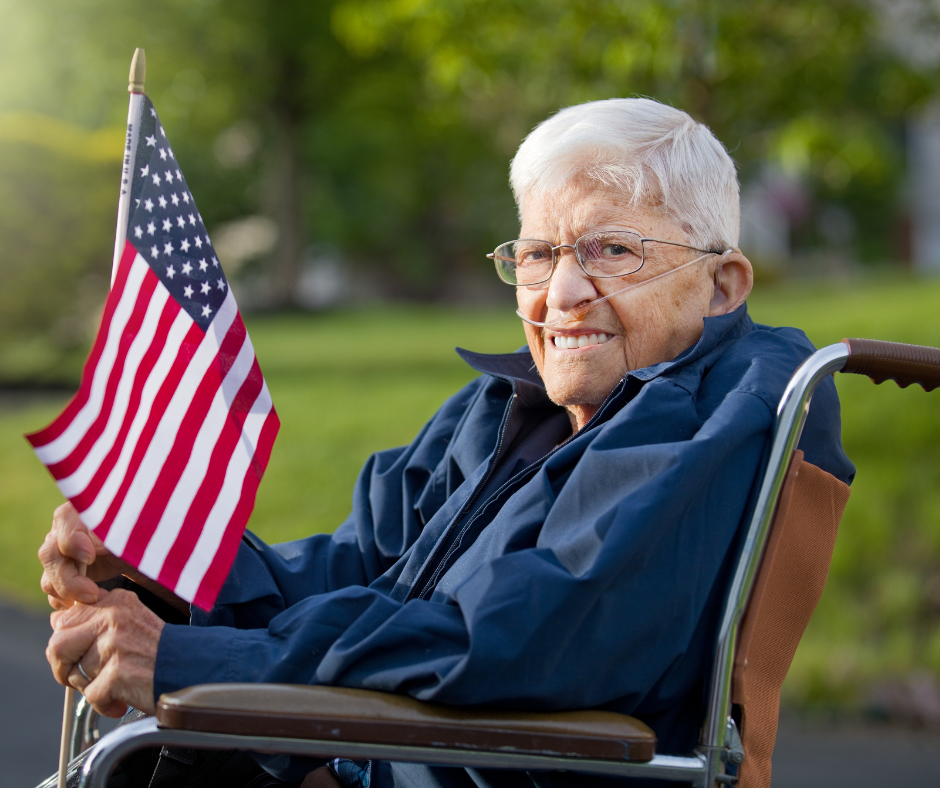A recent survey counted over 18.2 million American Veterans over age 65. Many of these Veterans include those who served in World War II, the Korean War, the Vietnam War, and the Persian Gulf War. Suppose you are caring for an elderly Veteran. In that case, you should know about the benefits and services available for the various health and financial challenges Veterans may face.
As discussed, the U.S. Department of Veterans Affairs (“VA”) provides the most significant core of services. But some other organizations offer elderly Veteran programs also.
What Are VA Benefits for Elderly Veterans?
Two primary VA programs provide qualifying elderly Veterans with a supplemental monetary sum on top of their regular VA Pension benefits. One is the Aid and Attendance benefit. The other is the Housebound benefit.
The Aid and Attendance benefit was created to help Veterans facing extraordinary healthcare challenges. To qualify for the Aid and Attendance benefit, the Veteran must be at least 65 years old and a wartime Veteran who saw active duty. Then, at least one of the following must be true:
- You cannot perform daily activities, such as bathing, feeding, and dressing, and another person must help you, or
- You are either completely bedridden or spend large portions of each day in bed because of illness, or
- A disability has caused you to lose mental or physical abilities, and you are a patient in a nursing home, or
- Your eyesight is very limited, and even with glasses or contact lenses, your vision is 5/200 or less in both eyes, or your visual field has a concentric contraction of five degrees or less.
The other supplemental income program for Veterans is the Housebound benefit. To qualify for that program, a Veteran must get a VA pension and must also spend most of their time housebound because of a permanent disability. A Veteran cannot get both the Housebound benefit and the Aid and Attendance benefit.
The VA also has programs for Geriatric and Extended care. Geriatric care typically involves more complicated healthcare related to aging. Extended care, or long-term care, helps provide Veterans with daily care as they age. The VA can help eligible Veterans with long-term care or can help connect Veterans with private options.
What Programs Does the Senior Veterans Service Alliance Provide?
The Senior Veterans Service Alliance is a non-profit organization that has helped connect Veterans and their families with Veterans benefits since 2011. The non-profit focuses on assisting veterans in getting the benefits they deserve from the VA and connecting them with services from other third-party organizations. Some specific elderly veteran services the Senior Veterans Service Alliance helps with include assisted living placement, end-of-life advice, and home care.
Contact our Minnesota Elder Lawyers for More Information
If you are an elderly Veteran or are caring for one, it may seem daunting to know where to find help. Call or email our Minnesota elder attorney today, and we can help connect you with programs through the VA or other organizations to get you the help you need. Simply contact 763-244-2949 to schedule your consultation.


